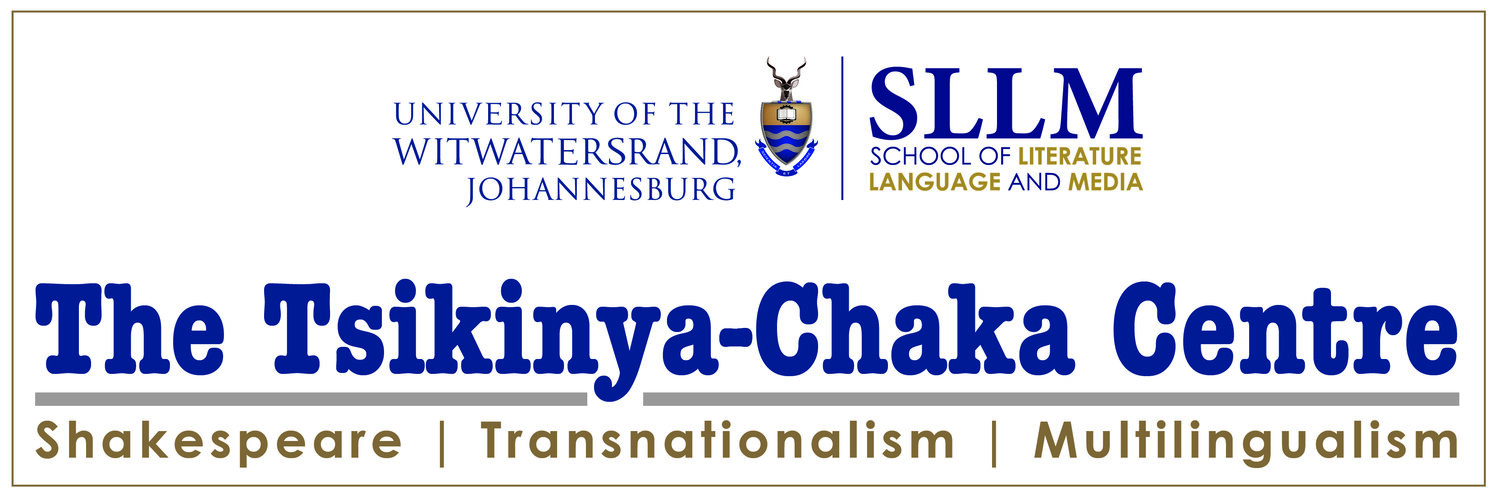Announcing a new title from TCC Press
TCC Press was established in 2022 as the Tsikinya-Chaka Centre’s publishing arm, with the primary aim of bringing new and previously-unpublished translations of Shakespeare’s plays into print (and e-book format too, of course). The Press also has a role to play in the TCC’s Lives of the translators project, which seeks to investigate and recuperate the lives and times of African-language Shakespeare translators of the past century. After completing a quartet of Afrikaans Shakespeare translations by Deryck Uys, TCC Press is proud to announce that its next title will be a bilingual isiXhosa-English book, Isiqalo sobulumko: The Life and Work of Bennett Best Mdledle.
Last year, Wits University doctoral researcher and TCC affiliate Zwelakhe Mtsaka was approached by Blanche Mdledle-Mdi, the daughter of B.B. Mdledle (1899-1970), who was the first person to produce published translations of Shakespeare into isiXhosa. She had written a short memoir paying tribute to her father.
The isiXhosa title of this original text is Umyezo wohluka kweminye ngeziqhamo zawo oku (One garden differs from another by its fruit). It has been translated into English by Sebolelo Mokapela, and the side-by-side bilingual text now forms the core of a new book, Isiqalo sobulumko - a title taken from Blanche Mdledle-Mdi’s Biblical epigraph, “Isiqalo sobulumko kukoyika uYehova”: “The beginning of wisdom is the fear of the Lord” (Psalm 111:10).
The expanded book includes previously-published articles by Zwelakhe Mtsaka and Peter Mtuze about Mdledle’s translations of Julius Caesar in 1957 and Macbeth in 1959 (Mdledle also translated Twelfth Night: Ubusuku beshum’ elinambini appeared in 1960). There is an introduction by TCC director and the book’s editor, Chris Thurman, who has also written an essay that situates Mdledle’s work within the twentieth-century history of South African Shakespeare translations. The Foreword is by Sanele Ntshingana, who recently co-translated passages from Othello into isiXhosa for the Baxter Theatre’s multilingual production of the play.
Who was B.B. Mdledle?
In his contribution to the book, Mtsaka writes: “Apart from his Shakespeare translations, Mdledle also co-authored four other books in isiXhosa for schoolchildren. He is known for his varied activities in community development in the former Transkei, including agriculture, farming and education; most remarkable of all was the co-founding of a school in the small town of Cala in the Eastern Cape, later called B.B. Mdledle Junior Secondary School.” For most of his career Mdledle taught at Lovedale College; in the 1930s and 40s, he was involved in organisations such as the Cape African Teachers’ Union (CATU) and attempted to participate in the Union government’s limited processes of “Native Representation”.
Mtsaka notes that he “hosted many meetings at his home in Alice attended by the likes of Z.K. Matthews (ANC top brass, responsible for co-writing the Freedom Charter in 1955) and Liberal Party M.P. William Ballinger, who was a regular guest in his capacity as an advisor. Notwithstanding Mdledle’s assertion that he was ‘first and foremost an educator’, the fact that he later occupied the portfolio of Transkei Minister of Education at the invitation of his former student, Kaiser Matanzima – Prime Minister and then President of the nominally independent ‘homeland’ or Bantustan of Transkei – complicates his political legacy. Yet in his Shakespeare translations, as in his work as educator more generally, Mdledle was primarily concerned with promoting isiXhosa as a language of learning and teaching, of creativity and cultural exchange.”
Isiqalo sobulumko explores the nuanced dimensions of Mdledle’s legacy from the varying perspectives of family members, historians, linguists and literary scholars. Pre-orders are now available!


